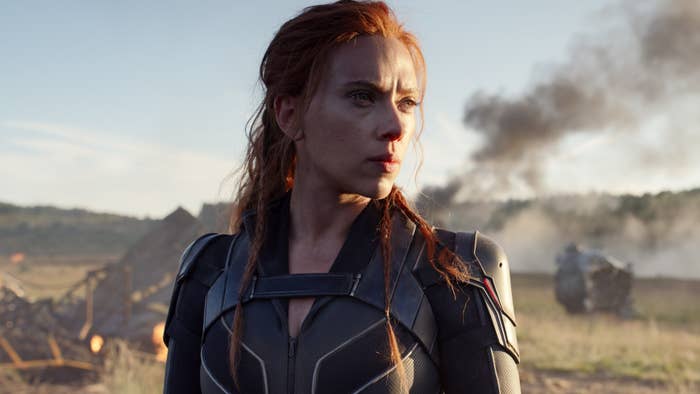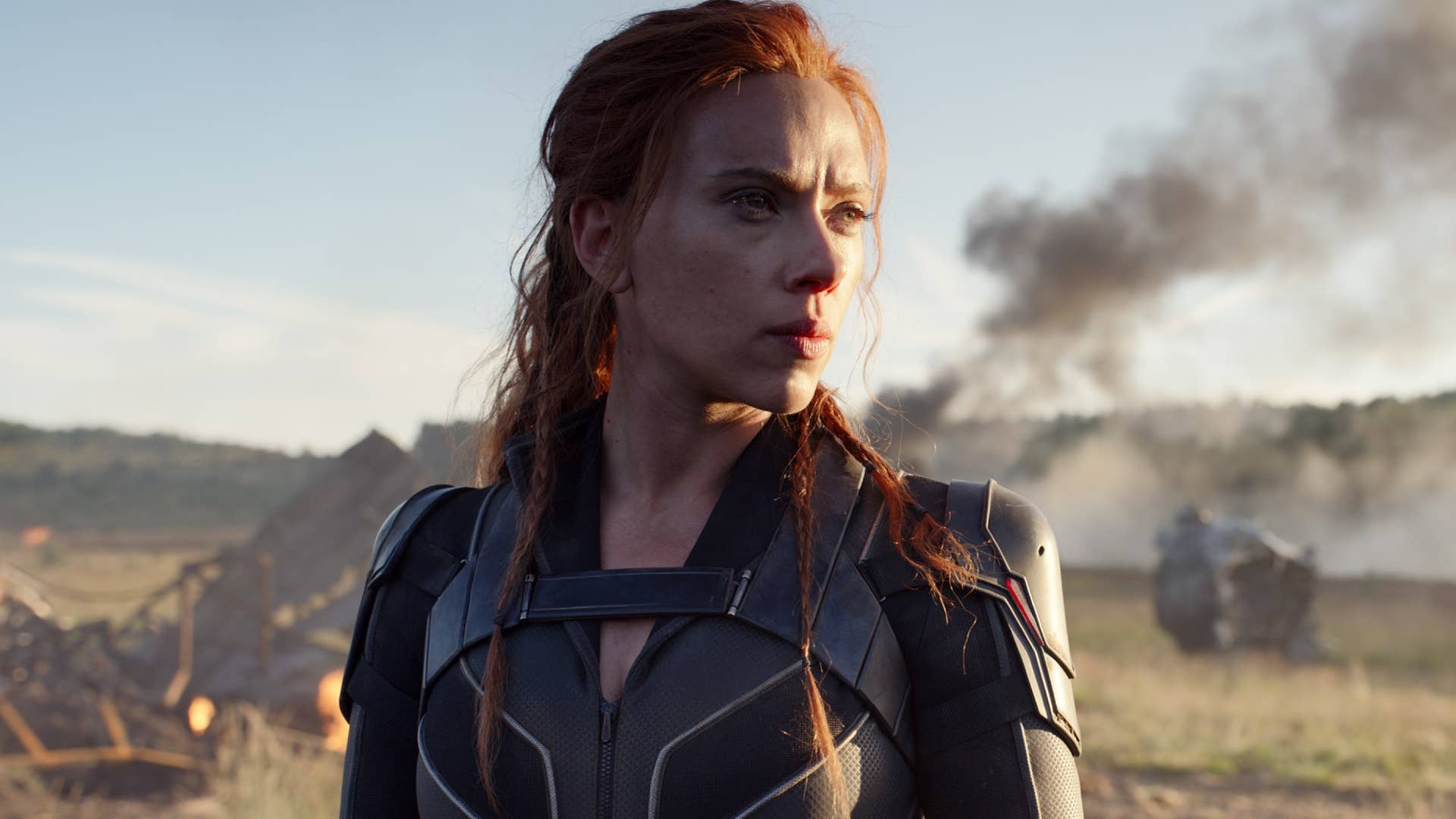
UPDATED 7/30, 12:35 p.m. ET: Johansson’s agent Bryan Lourd, who is also co-chairman at Creative Artists Agency, issued a lengthy response to Disney’s statement on the Black Widow dispute, taking aim—among many things—at the company highlighting the star’s “salary in their press statement in an attempt to weaponize her success as an artist and businesswoman, as if that were something she should be ashamed of.”
“[Disney] have shamelessly and falsely accused Ms. Johansson of being insensitive to the global COVID pandemic, in an attempt to make her appear to be someone they and I know she isn’t,” Lourd writes early in his statement. “Scarlett has been Disney’s partner on nine movies, which have earned Disney and its shareholders billions. The company included her salary in their press statement in an attempt to weaponize her success as an artist and businesswoman, as if that were something she should be ashamed of. Scarlett is extremely proud of the work that she, and all of the actors, writers, directors, producers, and the Marvel creative team have been a part of for well over a decade.”
Lourd continued: “This suit was filed as a result of Disney’s decision to knowingly violate Scarlett’s contract. They have very deliberately moved the revenue stream and profits to the Disney+ side of the company, leaving artistic and financial partners out of their new equation. That’s it, pure and simple. Disney’s direct attack on her character and all else they implied is beneath the company that many of us in the creative community have worked with successfully for decades.”
See original story below.
Scarlett Johansson is suing Disney over the release of Black Widow.
As Joe Flint and Erich Schwartzel first reported for the Wall Street Journal, and as seen in court documents viewed by Complex, Johansson filed a lawsuit in Los Angeles Superior Court Thursday alleging that her contract was breached when Marvel’s parent company released the film on the Disney+ platform alongside its theatrical run.
According to Johansson, an agreement with Marvel Entertainment included the guarantee of a theater-only release. Furthermore, the suit states, Johansson’s salary was based “in large part” on how well the film—which also stars Florence Pugh and David Harbour—did at the traditional box office.
“Disney intentionally induced Marvel’s breach of the agreement, without justification, in order to prevent Ms. Johansson from realizing the full benefit of her bargain with Marvel,” part of the suit reads.
Elsewhere, the suit alleges that Marvel and Disney were not responsive when Johansson’s team tried to renegotiate her contract in light of Black Widow’s altered release strategy.
When reached for comment by Complex Thursday afternoon, Johansson’s attorney John Berlinski argued that Disney is “hiding behind COVID-19 as a pretext” to boost Disney+ subscribers and the company’s stock price by releasing movies like Black Widow onto the platform.
“It’s no secret that Disney is releasing films like Black Widow directly onto Disney+ to increase subscribers and thereby boost the company’s stock price—and that it’s hiding behind Covid-19 as a pretext to do so,” Berlinski told Complex. “But ignoring the contracts of the artists responsible for the success of its films in furtherance of this short-sighted strategy violates their rights and we look forward to proving as much in court. This will surely not be the last case where Hollywood talent stands up to Disney and makes it clear that, whatever the company may pretend, it has a legal obligation to honor its contracts.”
Potentially, the Johansson lawsuit could be a milestone in an era defined by sustaining disagreements about the compatibility of streaming and theatrical releases. During the pandemic, notably, the simultaneous-drop strategy became a widely popular method and has been used for a number of major releases.
Previously, the National Association of Theatre Owners expressed criticism of pandemic era release strategies, saying “an exclusive theatrical release means more revenue” for stakeholders in “every cycle” of a film’s life.
“Pristine digital copies became available within minutes of release on Disney+,” the NATO’s statement, released earlier this month, reads. “Black Widow was the most torrented movie for the week ending July 12. It is also available on myriad illegal streaming sites all over the internet. This was also the case for all simultaneous releases (Wonder Woman 1984, Godzilla vs Kong, Cruella, Mortal Kombat). This did not happen for F9 or A Quiet Place 2. How much money did everyone lose to simultaneous release piracy?”
On Thursday afternoon, Disney released a statement combatting Johansson’s suit. “There is no merit whatsoever to this filing. The lawsuit is especially sad and distressing in its callous disregard for the horrific and prolonged global effects of the Covid-19 pandemic,” the statement read. “Disney has fully complied with Ms. Johansson’s contract and furthermore, the release of Black Widow on Disney+ with Premier Access has significantly enhanced her ability to earn additional compensation on top of the $20M she has received to date.”
More recently, Stephen Dorff—star of the upcoming Old Henry—clarified his widely excerpted comments about Black Widow and Johansson. The True Detective actor, who previously said the Marvel movie “looks like garbage,” told TMZ this week that he was simply in a “shit-talking” mood at the time but ultimately “felt bad” about what he said.
“I felt a little bad about it,” he said. “Happens sometimes.”

